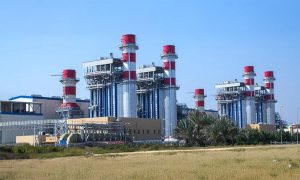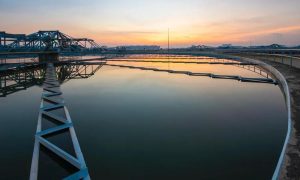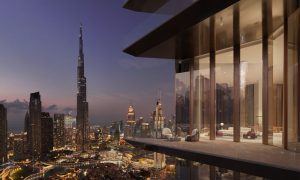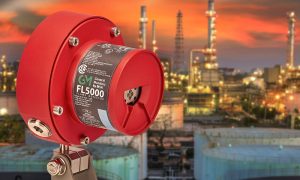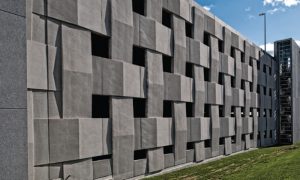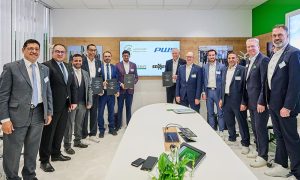2020 win would bring immediate orders – NFT
Instant demand for kit if Dubai wins Expo 2020

NFT Cranes managing partner Nabil Al Zahlawi says he expects immediate orders for tower cranes if Dubai wins hosting rights for Expo 2020, as a number of projects are restarted.
Al Zahlawi was speaking at the International Tower Cranes conference in Berlin, organised by KHL Group, where he gave an overview of the tower crane rental business in the Middle East. Rental companies are a major feature of the crane industry, and Dubai-based NFT Cranes is now one of the largest (if not the largest) tower crane rental company in the world, as well as the sales agent for Potain.
At the height of the Dubai boom, the company had 1000 cranes in its fleet, though this number dropped to 500, with cranes moved to other markets where NFT operates outside of the Middle East, while in 2014 the company expects to have 700 cranes operating in the region.
In his presentation, Al Zahlawi outlined to delegates a signficant number of challenges for rental companies operating in the Middle East.
Among these were: the huge investment, due to the signifcant amounts of stock that the company must hold in reserve. A signficant amount of the fleet is currently on the ground, awaiting projects, he said – a measure taken since phone calls can come at any time, with cranes wanted in short order, sometimes as soon as the next day.
Work sites can also operate 24 hours a day, seven days a week, meaning that there is much more wear and tear on a crane, compared to a work site in Europe where it is only being used five-six days per week, and only for no more than 8-12 hours. Longer working hours also means shorter rental durations for the project. And operators tend to have lower skill levels, with only short training periods.
The condition of the ropes is also the responsibility of rental companies. And if there is a break-down, the renter will deduct the down-time from the rental price.
The environmental conditions in the Middle East further accelerate a crane’s rate of aging. Even when it is not being used, and is lying in the yard, the high humidity ages the machine. “For manufacturers, the Middle East is a good place for testing your equipment”, Al Zahlwari noted.
For these reasons, after 15 years a tower crane should be scrapped, he believes, a figure at odds with some manufacturers, who believe their cranes are okay to operate to at least 25 years. New regulations that are coming will also place age limits on cranes, he said, with cranes older than 15 years unable to be used on work sites.
Another issue for rental companies in the region is ownership – when a crane is on a site, it is hard for a rental company to prove ownership, and the principle is that ‘who has the crane, owns it’.
Further problems specific to the Middle East include border tariffs, such as when a unit is taken from the UAE to Saudi Arabia, and from UAE to Qatar. There can also be problems getting cranes out of Qatar, since the country is eager to categorise old tower cranes as scrap metal, due to shortages of scrap metal in the country.
While overall levels of business are still tepid, Al Zahlawi believes that a number of mega-projects in Saudi Arabia, UAE and Qatar are on the horizon. 50% of business in 2015 will come from Saudi Arabia, 20% from UAE, 20% from Qatar, and 10% from the rest of the Middle East.



